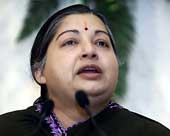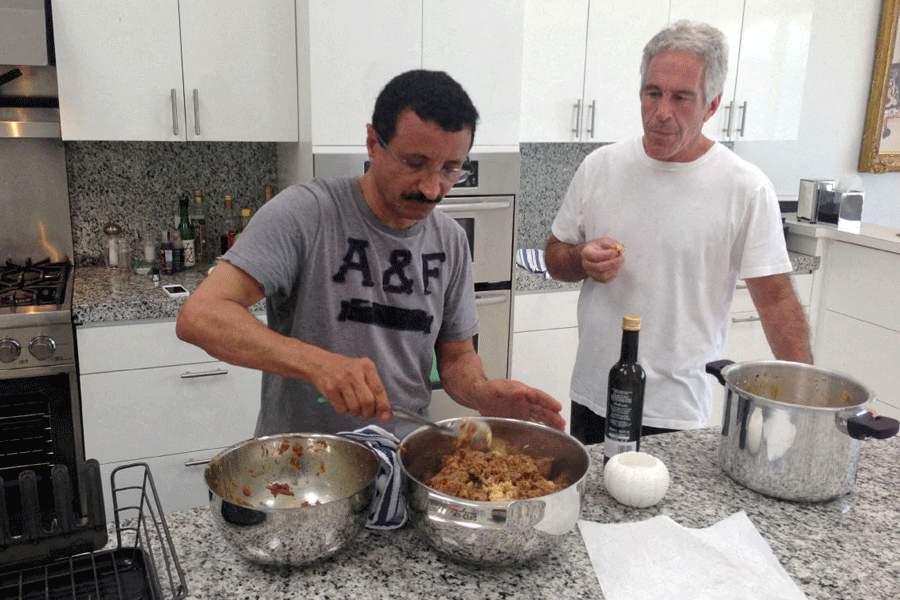 |
| No more a hawk |
John Ashcroft is not someone who is easily impressed. George W. Bush’s attorney-general would easily bond with those in the Bharatiya Janata Party, including some personal friends of the prime minister, Atal Bihari Vajpayee, who rightly argue that terrorists have no human rights. This week, Ashcroft sat riveted as the deputy prime minister, L.K. Advani, with the aid of the Intelligence Bureau director, K.P. Singh, and the Union home secretary, N. Gopalaswami, detailed India’s record in fighting terrorism. Ashcroft was taken by surprise when the Indian delegation briefed him in detail how 183 terrorist cells across India had been broken up by the BJP-led government.
Ashcroft must have resisted the temptation to reach for the dictionary when Advani told him that India had successfully put an end to the “exfiltration” of subversives. The deputy prime minister explained that until a few years ago, Indian citizens used to be recruited in a big way to be trained in religious fundamentalist camps in Pakistan and along Pakistan’s border with taliban-controlled Afghanistan. Not any more. More than 90 per cent of the armed subversives in Kashmir today are the so-called “Afghan-Arabs” — the trained mujahids from Arab countries who have been stranded in south Asia by Afghanistan’s history of jihad. Or Pakistanis sent across the border. There was a time when Kashmiri separatists were largely indigenous people, those who took up arms for the cause of self-determination in their state. No more.
At the end of his meeting with the Indian delegation on Monday, Ashcroft realized that India has been far more successful than the United States of America in fighting terrorism, although most Indians may not appreciate this success or may even be oblivious to it.
Ashcroft has been unable to show any worthwhile results in his crackdown on terrorists. The US has so far been able to charge only one man in connection with the terrorist attacks on New York and Washington on September 11, 2001. The irony is that the man was already in jail when the attacks took place. Ashcroft has drafted new laws, taken draconian measures and amassed powers which no civilian — not even the president — enjoys in the US. Yet his success in nabbing subversives has been nowhere near that of India’s recent record of smashing 183 terrorist cells. Ashcroft has managed to disrupt the lives of thousands of innocent people in the US. His success in fighting terrorism remains questionable.
He remains undaunted, though, in his mission. The son and grandson of preachers from “Assemblies of God” in Missouri, Ashcroft is nothing if he is not righteous. He does not drink or smoke. Just as the taliban disapproved of music, Ashcroft disapproves of dancing. Yet, he is the most powerful man in the Bush administration on interior policies. When he is convinced that he is right, Ashcroft does not hesitate to ride rough- shod over the state department or the Pentagon. He has had one mission since September 11 — prevent a repetition of the events which shook America on that fateful day.
As someone imbued with that mission, Ashcroft can appreciate the success of others who are equally determined to root out terrorism. Some of what Advani and his aides told Ashcroft on Monday did not come as a complete surprise to the attorney-general. Agencies in his turf, such as the Federal Bureau of Investigation, have kept him abreast in recent months of the kind of intelligence which India has been sharing with the Americans.
In the months soon after September 11, the Americans politely received the intelligence provided by the Indians. Then they trashed it. They had just embraced Pervez Musharraf as their new ally in the campaign against terrorism. But as time passed and the Americans were unable to catch many terrorists under the leadership of al Qaida or the taliban, they started taking a serious look at inputs coming from the Indians. In time, they realized that many of the things the Indians were telling the FBI and other agencies were, indeed, coming true. Over the last one year and nine months, India has given the Americans dossiers on how Pakistan has become a haven for terrorists who have found Afghanistan too hot for comfort. Dossiers too on money-transfers from Pakistan or by Pakistanis to al Qaida cells in many parts of the world.
Earlier, such information was dismissed by the Americans as products of India’s “obsession” with Pakistan. Today such dossiers are being taken for their real worth in the fight against terrorism. Advani’s meeting with Ashcroft could not, therefore, have been more opportune. After relying excessively for a time on expectations that the US would straighten out Pakistan for India on the issue of cross-border terrorism, New Delhi has retreated to its earlier conviction that India should fight its own battle against the terrorist threat that it faces in its neighbourhood. However, America’s understanding and its ability to tighten the screws on Musharraf continue to be central to this fight. Ashcroft can do more than anyone else in the Bush administration in directing American policies in that direction. His influence on Bush is the result of his zeal in fighting terrorism within the US and without. In this commitment, Ashcroft is not held back by the exigencies of diplomacy, unlike Colin Powell and Richard Armitage in the state department, or by the sentimentality in the Pentagon born out of old ties with Pakistan’s army general headquarters in Rawalpindi.
Ashcroft seldom travels abroad. His overseas visits since September 11, 2001, have been focussed and result-oriented. That he has agreed to go to India shortly is a signal that Advani’s talks with Ashcroft on Monday have produced a powerful ally for India in the Bush administration, an ally whose role will be vital to India’s fight against terrorism. While this remains the signal achievement of Advani’s three-day stay in Washington, his visit also saw a shift in the way America views the second most powerful man in India. When Advani travelled to the US in January last year, he was looked at by the Americans with mixed feelings.
His visit to the US prior to that was more than a decade ago, and Advani’s reputation as a hawk was widespread in circles in the US which deal with south Asia. Advani arrived in Washington last year only a few weeks after the outrage on Parliament carried out at Pakistan’s behest. Suspicion was at its height in the US that India’s home minister was itching to teach Pakistan a lesson not only for that attack but also for the way Islamabad has been bleeding India through a low-intensity war for years.
This year, the message Advani carried was different. He was the first major Indian leader to travel to America since Vajpayee unveiled his new peace initiative with Pakistan. At a meeting with heads of influential think-tanks at the residence of the Indian ambassador, Lalit Mansingh, Advani surprised his audience by asking them what he thought of India’s new peace efforts. He did not lecture them, he was not righteous. As always, the Americans found Advani’s logic unmatchable. He used words taken out of Musharraf’s mouth to expose the general. During the recent visit to Islamabad of the US deputy secretary of state, Richard Armitage, Musharraf had told the Americans that there were no terrorist training camps on any territory under Islamabad’s control. If there were any, they would be gone in 24 hours.
Advani told the think-tanks that logic demanded that it had to be one way or the other. It was one thing to insist that there were no camps at all. But if the camps do exist and if Musharraf’s junta is confident of closing those down in 24 hours, then Pakistan’s intelligence and law enforcement agencies must be so familiar with the camps as to give such an assurance to Armitage. Advani came to the US this time, determined to aid the process of further freeing India-US relations from being Pakistan-centric. Much of his talks in the first two days were hijacked by Washington’s desire to see Indian troops go into Iraq. Bush once again lived up to his reputation of doggedly pursuing what he has set up for himself as an objective. This time it was Indian involvement in bringing stability to Iraq. It was only during the third day of Advani’s stay in Washington that his detailed brief for a comprehensive review of India-US relations could be unveiled. His meeting with the vice-president, Dick Cheney, the man who is often described as the real ruler of the US, was anything but Pakistan-centric.
Last year, Advani’s meeting with Cheney had a fictional ring to it. The vice-president was being held in an undisclosed secure location as part of anti-terrorist precautions and talked to Advani using video-conferencing facilities. This time the meeting was as real as their firm handshake.










